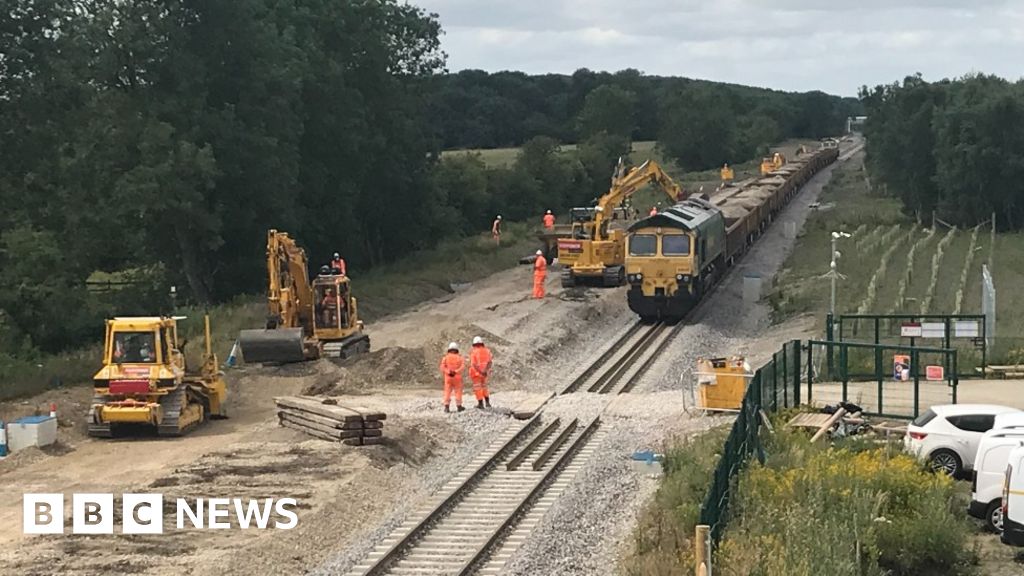- By Seb Noble
- BBC News, Cambridgeshire
East West Rail will eventually provide a direct link between Oxford and Cambridge
A £7bn new railway needs to be more aligned with planned development in the areas it is serving, the National Audit Office (NAO) has said.
It has raised concerns about East West Rail, between Oxford and Cambridge.
It said government departments needed to work more closely together to make sure the scheme supported new housing and economic growth.
The government said it would consider the recommendations that were made by the NAO.
The warning came in a new report by the NAO, which is an independent public spending watchdog.
It has looked into the costs and benefits of the railway – and the current plan for delivering it.
Construction work on the line between Oxford and Bedford is already under way.
Current proposals to extend it include new stations at Tempsford, near St Neots, and in Cambourne.
The NAO said the business case for the railway had been based on new development along its route.
‘Coherent vision’
The NAO said closer working between government departments was needed to make sure both projects did not end up at cross purposes.
Gareth Davies, head of the NAO, said: “The rationale for East West Rail rests on its wider strategic aims of increasing economic growth in the Oxford to Cambridge region.
“To maximise the economic benefits from its investment in East West Rail, government must ensure stronger strategic alignment between departments and with wider local growth initiatives, so that there is a shared, coherent vision for the future of the region, and the contribution that the East West Rail project will make to it is clear.”
Image source, East West Rail
New stations are due to be built at Cambourne and Tempsford as part of the route of East West Rail
A government spokesperson said: “We have supported the National Audit Office’s review of East West Rail and will carefully consider its recommendations.
“East West Rail will serve as a catalyst for economic growth in the Oxford-Cambridge region, bringing communities closer to job opportunities, and progress is already being made to deliver the first passenger service from Oxford to Bletchley and Milton Keynes by 2025.
“As the NAO report recognises, the region’s huge economic potential is an important factor in the business case for East West Rail, and we will continue to work closely across government to ensure the full benefits of the rail investment are realised.”
A spokesperson for the East West Railway Company, which is in charge of delivering the route, said: “The case for EWR rests on the economic benefits that a new railway brings in terms of new businesses, jobs and investment, rather than just improved connectivity alone.
“As we have said, and as the NAO makes clear, not all of these benefits are captured in the conventional benefit-cost ratio, and therefore it is essential that we work closely with partners in government and locally to make sure these benefits are delivered for the communities that we serve.”
A further consultation on East West Rail is due to take place next year.

Robert Johnson is a UK-based business writer specializing in finance and entrepreneurship. With an eye for market trends and a keen interest in the corporate world, he offers readers valuable insights into business developments.








